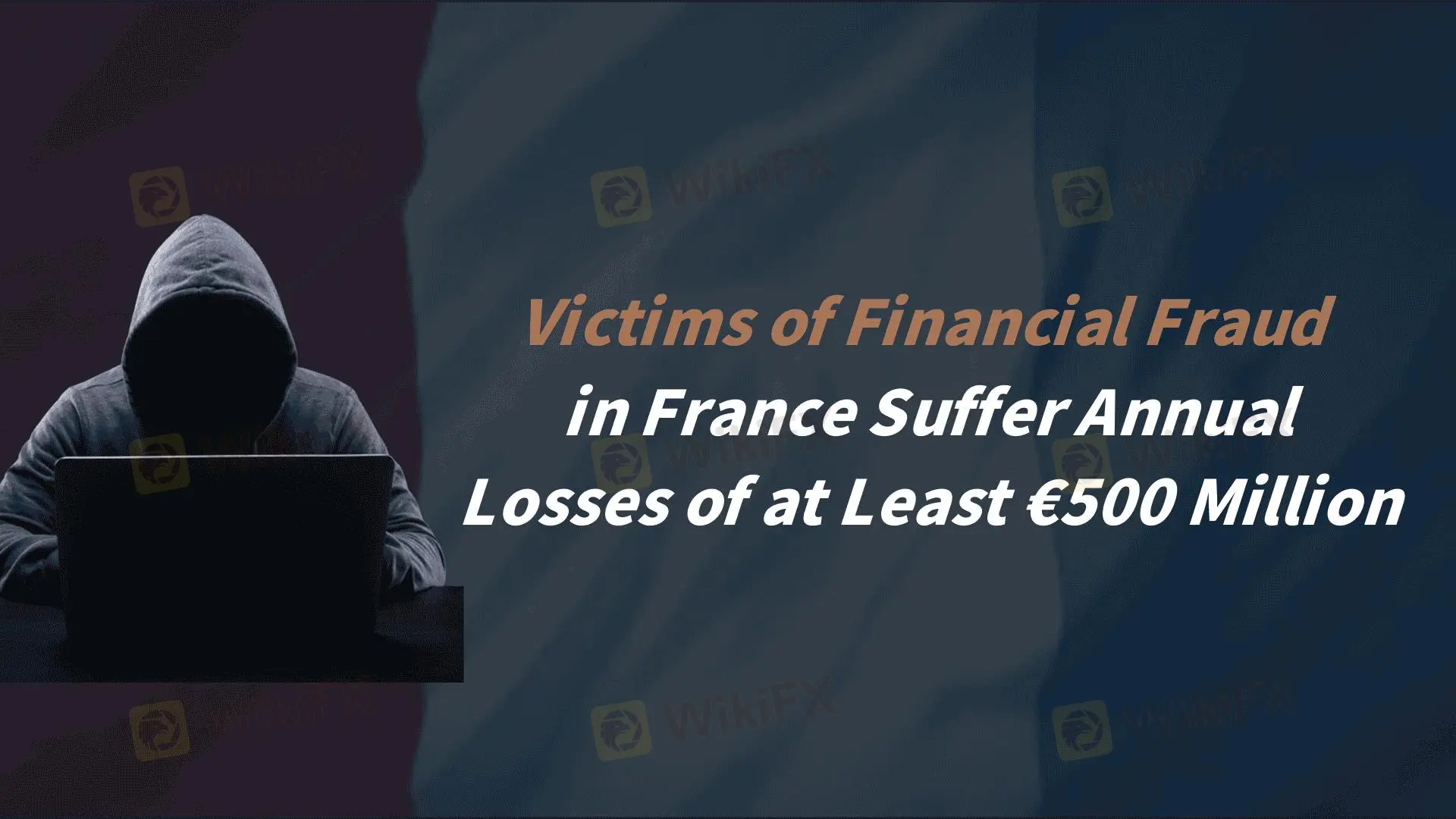简体中文
繁體中文
English
Pусский
日本語
ภาษาไทย
Tiếng Việt
Bahasa Indonesia
Español
हिन्दी
Filippiiniläinen
Français
Deutsch
Português
Türkçe
한국어
العربية
Victims of Financial Fraud in France Suffer Annual Losses of at Least €500 Million
Abstract:Financial fraud in France is becoming increasingly diverse, with reports indicating that victims incur annual losses of at least €500 million.

The AMF report reveals a growing diversification of financial fraud in France, encompassing fake loans, savings accounts, payment and insurance services, and even green investments or crypto assets. The Paris Prosecutors Office estimates that victims lose at least €500 million annually due to financial scams. Although the number of complaints has decreased, this may be attributed to the use of civil compensation mechanisms and collective complaints initiated by certain law firms.
In response, the Paris Prosecutors Office, the French Financial Markets Authority (AMF), the Prudential Supervision and Resolution Authority (ACPR), and the Directorate-General for Competition, Consumer Affairs, and Fraud Control (DGCCRF) are working together to combat various types of financial scams.
Common Types of Financial Fraud:
• Fake Loans and Savings Products: Scammers offer high-yield fake loans or savings products to lure victims into investing.
• Payment and Insurance Services Fraud: Fraudsters impersonate legitimate institutions to offer fake payment or insurance services, stealing funds.
• False Investment Opportunities: Exploiting current trends like green investments or crypto assets, fraudsters attract investors and then disappear with the funds.
Protecting Yourself Against Financial Fraud
To safeguard against financial fraud, investors should verify the legitimacy of financial service providers before engaging with them. WikiFX is a global regulatory inquiry tool for forex brokers, offering information on brokers regulatory status, ratings, and user reviews. By using WikiFX, investors can:
• Verify Regulatory Status: Ensure brokers are registered and regulated by relevant authorities.
• Check User Reviews and Ratings: Gain insights from other investors experiences and feedback.
• Identify Potential Risks: Avoid working with brokers with poor records or who are unregulated.
By acting cautiously and leveraging tools like WikiFX, investors can reduce the risk of financial fraud and protect their assets.
Disclaimer:
The views in this article only represent the author's personal views, and do not constitute investment advice on this platform. This platform does not guarantee the accuracy, completeness and timeliness of the information in the article, and will not be liable for any loss caused by the use of or reliance on the information in the article.
Read more

TriumphFX Rebrands to Continue Global Fraud: Over RM80 Million Lost
The notorious forex investment company TriumphFX, previously exposed for running a global scam operation for over a decade, is now being accused of rebranding itself to continue defrauding unsuspecting investors. Despite being unregulated and based offshore in Seychelles, TriumphFX has actively targeted Malaysian investors, luring them with false promises and eventually converting funds into cryptocurrency, making recovery nearly impossible.

TriumphFX Faces 29 Exposure Reviews on WikiFX
TriumphFX faces scrutiny with 29 exposure reviews on WikiFX, revealing regulatory warnings from ID BAPPEBTI, VU VFSC, SG MAS, and MY SCM, plus user complaints about withdrawal issues and fraud concerns.

What WikiFX Found When It Looked Into Exclusive Markets
In the fast-growing world of online trading, security and regulation are essential. One company now raising questions in this space is Exclusive Markets, a broker claiming to be regulated, but scrutiny of its licence and operations suggests a more complex picture.

TriumphFX Review 2025: A Safe Bet or a Risky Trap?
Is TriumphFX a trustworthy broker or a scam in 2025? This review explores its regulation, withdrawal issues, and more to help you decide if it's a safe bet or a risky trap.
WikiFX Broker
Latest News
SkyLine Guide 2025 Malaysia: 100 Esteemed Judges Successfully Assembled
Vantage Markets Review 2025: Trusted Forex and CFD Trading Since 2009
Why STARTRADER Is Popular Among Traders?
A Guide to Intraday Forex Trading You Can't Miss Out
CONSOB Blocks Access to 13 Unauthorized Investment Websites
TradingPRO: A Closer Look at Its Licences
The world could be facing another ‘China shock,’ but it comes with a silver-lining
New SEBI Regulations on Intraday Trading
Everything You need to know about Barath Trade
IronFX Broker Review 2025: A Comprehensive Analysis of Trustworthiness and Performance
Currency Calculator


